-
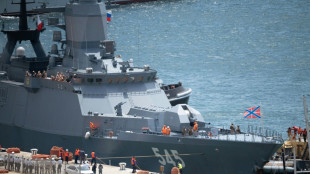 Russia joins Chinese, Iran warships for drills off South Africa
Russia joins Chinese, Iran warships for drills off South Africa
-
40 white roses: shaken mourners remember Swiss fire victims

-
 German trial starts of 'White Tiger' online predator
German trial starts of 'White Tiger' online predator
-
Stocks rise despite mixed US jobs data
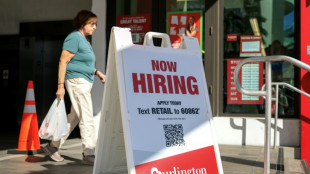
-
 'Palestine 36' director says film is about 'refusal to disappear'
'Palestine 36' director says film is about 'refusal to disappear'
-
US December hiring misses expectations, capping weak 2025
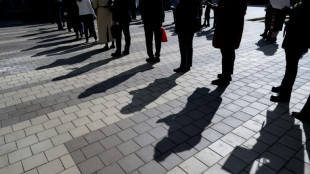
-
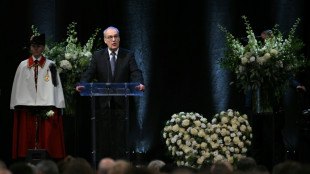 Switzerland 'devastated' by fire tragedy: president
Switzerland 'devastated' by fire tragedy: president
-
Rosenior not scared of challenge at 'world class' Chelsea

-
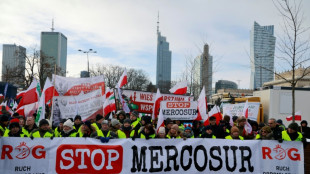 Polish farmers march against Mercosur trade deal
Polish farmers march against Mercosur trade deal
-
Swiatek wins in 58 minutes as Poland reach United Cup semis

-
 Ski great Hirscher pulls out of Olympics, ends season
Ski great Hirscher pulls out of Olympics, ends season
-
'War is back in vogue,' Pope Leo says
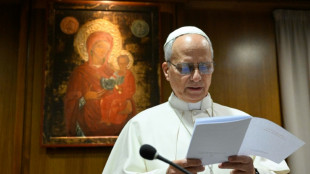
-
 Storms pummel northern Europe causing travel mayhem and power cuts
Storms pummel northern Europe causing travel mayhem and power cuts
-
France has right to say 'no' to US, Paris says
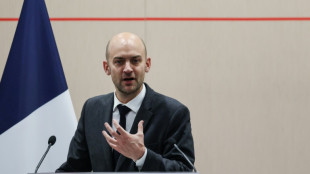
-
 TikTok drives 'bizarre' rush to Prague library's book tower
TikTok drives 'bizarre' rush to Prague library's book tower
-
EU countries override France to greenlight Mercosur trade deal

-
 Russia joins Chinese, Iran warships for drills off S.Africa
Russia joins Chinese, Iran warships for drills off S.Africa
-
Stocks rise ahead of US jobs data and key tariffs ruling
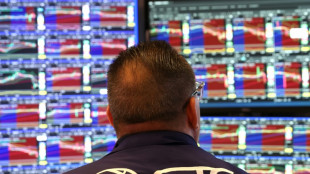
-
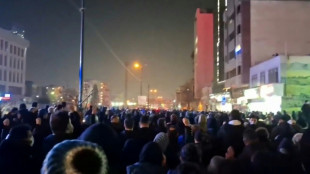 'All are in the streets': Iranians defiant as protests grow
'All are in the streets': Iranians defiant as protests grow
-
Kurdish fighters refuse to leave Syria's Aleppo after truce
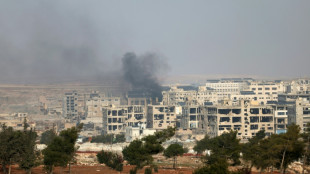
-
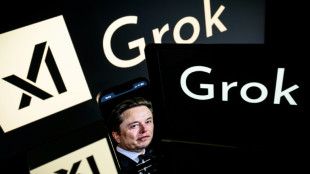 Grok turns off AI image generation for non-payers after nudes backlash
Grok turns off AI image generation for non-payers after nudes backlash
-
Germany factory output jumps but exports disappoint
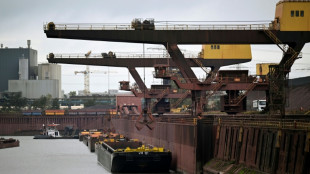
-
 Defiant Khamenei insists 'won't back down' in face of Iran protests
Defiant Khamenei insists 'won't back down' in face of Iran protests
-
Russian strikes cut heat to Kyiv, mayor calls for temporary evacuation
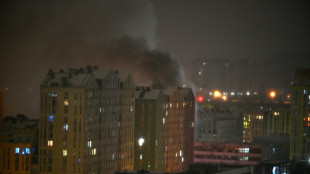
-
 Switzerland holds day of mourning after deadly New Year fire
Switzerland holds day of mourning after deadly New Year fire
-
Hundreds of thousands without power as storms pummel Europe

-
 Man City win race to sign forward Semenyo
Man City win race to sign forward Semenyo
-
Experts say oceans soaked up record heat levels in 2025

-
 'Would be fun': Alcaraz, Sinner tease prospect of teaming up in doubles
'Would be fun': Alcaraz, Sinner tease prospect of teaming up in doubles
-
Man City win race to sign Semenyo

-
 Chinese AI unicorn MiniMax soars 109 percent in Hong Kong debut
Chinese AI unicorn MiniMax soars 109 percent in Hong Kong debut
-
Iran rocked by night of protests despite internet blackout: videos
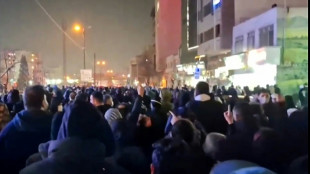
-
 Swiatek romps to United Cup victory in 58 minutes
Swiatek romps to United Cup victory in 58 minutes
-
Procession of Christ's icon draws thousands to streets of Philippine capital

-
 Every second counts for Japan's 'King Kazu' at 58
Every second counts for Japan's 'King Kazu' at 58
-
Syria announces ceasefire with Kurdish fighters in Aleppo
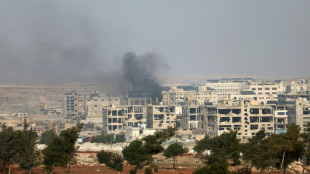
-
 Russia hits Ukraine with hypersonic missile after rejecting peacekeeping plan
Russia hits Ukraine with hypersonic missile after rejecting peacekeeping plan
-
Asian stocks mixed ahead of US jobs, Supreme Court ruling

-
 Scores without power as Storm Goretti pummels Europe
Scores without power as Storm Goretti pummels Europe
-
Sabalenka gets revenge over Keys in repeat of Australian Open final

-
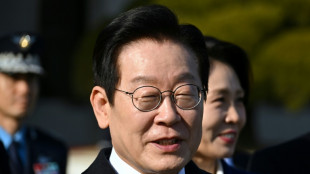 Fresh from China, South Korea president to visit Japan
Fresh from China, South Korea president to visit Japan
-
Injured Kimmich to miss icy Bundesliga return for Bayern

-
 Rybakina has little hope of change to tennis schedule
Rybakina has little hope of change to tennis schedule
-
Osimhen, Nigeria seek harmony with Algeria up next at AFCON

-
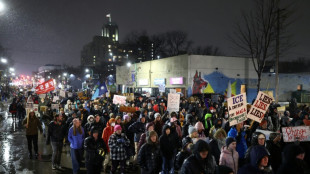 US immigration agent's fatal shooting of woman leaves Minneapolis in shock
US immigration agent's fatal shooting of woman leaves Minneapolis in shock
-
After fire tragedy, small Swiss town mourns 'decimated generation'
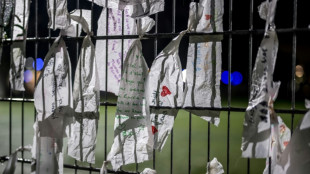
-
 Switzerland mourns Crans-Montana fire tragedy
Switzerland mourns Crans-Montana fire tragedy
-
Russia bombards Kyiv after rejecting peacekeeping plan

-
 Crunch time for EU's long-stalled Mercosur trade deal
Crunch time for EU's long-stalled Mercosur trade deal
-
Asian stocks rally ahead of US jobs, Supreme Court ruling

Saudi Arabia's Economic Crisis
Saudi Arabia, long a symbol of oil-driven wealth, faces mounting economic challenges that threaten its financial stability this decade. The kingdom’s heavy reliance on oil revenues, coupled with ambitious spending plans and global market shifts, has created a precarious fiscal situation. Analysts warn that without significant reforms, the nation risks depleting its reserves and spiralling towards bankruptcy.
The core issue lies in Saudi Arabia’s dependence on oil, which accounts for a substantial portion of its income. Global oil prices have been volatile, recently dipping below $60 per barrel, a level far too low to sustain the kingdom’s budget. The International Monetary Fund estimates that Saudi Arabia requires oil prices above $90 per barrel to balance its national budget. With production costs among the lowest globally, the kingdom can withstand lower prices longer than many competitors, but the prolonged slump is eroding its fiscal buffers. First-quarter oil revenue this year fell 18% year-on-year, reflecting both lower prices and stagnant production levels.
Compounding this is the kingdom’s aggressive spending under Vision 2030, a transformative plan to diversify the economy. Mega-projects like NEOM, a futuristic city, and investments in tourism, technology, and entertainment require vast capital. The Public Investment Fund, tasked with driving these initiatives, plans to inject $267 billion into the local economy by 2025. While non-oil revenue grew 2% in the first quarter, it remains insufficient to offset the decline in oil income. The government’s budget deficit is projected to widen to nearly 5% of GDP this year, up from 2.5% last year, with estimates suggesting a shortfall as high as $67 billion.
Saudi Arabia’s foreign reserves, once peaking at $746 billion in 2014, have dwindled to $434.6 billion by late 2023. The Saudi Arabian Monetary Agency has shifted funds to the Public Investment Fund and financed post-pandemic recovery, further straining reserves. To bridge the gap, the kingdom has turned to borrowing, with public debt now exceeding $300 billion. Plans to issue an additional $11 billion in bonds and sukuk this year signal a growing reliance on debt markets. The debt-to-GDP ratio, while relatively low at 26%, is rising steadily, raising concerns about long-term sustainability.
Global economic conditions add further pressure. Demand for oil is softening due to a slowing global economy, particularly in major markets like China. Saudi Arabia’s strategy of flooding markets to maintain share, as seen in past price wars, risks backfiring. Unlike previous campaigns in 2014 and 2020, which successfully curbed rival production, current efforts may fail to stimulate demand, leaving the kingdom exposed to prolonged low prices. The decision to unwind OPEC+ production cuts, adding nearly a million barrels per day to global supply, has driven prices lower, undermining revenue goals.
Domestically, the kingdom faces challenges in sustaining its social contract. High government spending on wages, subsidies, and infrastructure has long underpinned public support. Over two-thirds of working Saudis are employed by the state, with salaries consuming a significant portion of the budget. Cost-cutting measures, such as subsidy reductions and new taxes, have sparked unease among citizens accustomed to generous welfare. Military spending, including involvement in regional conflicts like Yemen, continues to drain resources, with no clear resolution in sight.
Efforts to diversify the economy are underway but face hurdles. Vision 2030 aims to boost private sector contribution to 65% of GDP by 2030, yet progress is slow. Non-oil sectors like tourism and manufacturing are growing but remain nascent. Local content requirements, such as Saudi Aramco’s push for 70% local procurement by 2025, aim to stimulate domestic industry but may deter foreign investors wary of restrictive regulations. Meanwhile, the kingdom’s young population, with high expectations for jobs and opportunities, adds pressure to deliver tangible results.
Geopolitical factors also play a role. Recent trade deals, including a $142 billion defence agreement with the United States, reflect Saudi Arabia’s strategic priorities but strain finances further. Investments in artificial intelligence and other sectors are part of a broader push to position the kingdom as a global player, yet these come at a time when fiscal prudence is critical. The kingdom’s ability to navigate these commitments while addressing domestic needs will be a delicate balancing act.
Saudi Arabia is not without tools to avert crisis. Its low production costs provide a competitive edge, and its substantial reserves, though diminished, offer a buffer. The government has signalled readiness to cut costs and raise borrowing, potentially delaying or scaling back some Vision 2030 projects. Privatisation and public-private partnerships could alleviate fiscal pressure, as could a rebound in oil prices, though the latter seems unlikely in the near term. The kingdom’s bankruptcy law, overhauled in 2018, provides a framework for restructuring distressed entities, potentially mitigating corporate failures.
However, the path forward is fraught with risks. Continued low oil prices, failure to diversify revenue streams, and unchecked spending could deplete reserves within years. A devaluation of the Saudi riyal, pegged to the US dollar, looms as a possibility, which could trigger inflation and unrest. Political stability, long tied to economic prosperity, may be tested if public discontent grows. The kingdom’s leadership must act decisively to reform spending, accelerate diversification, and bolster non-oil growth to avoid a financial reckoning.
Saudi Arabia stands at a crossroads. Its vision for a diversified, modern economy is ambitious, but the realities of a volatile oil market and mounting debt threaten to derail progress. Without bold reforms, the kingdom risks sliding towards financial distress, a scenario that would reverberate across the region and beyond. The coming years will test whether Saudi Arabia can redefine its economic model or succumb to the weight of its own ambitions.

Reverse Apartheid" in SA?

NYALA Digital Asset AG

Trump’s Crackdown: Lives/Risk

Russia's Population Plummets

Trump's Tariffs Batter Mexico

China vs. Putin and Kim?

Jewish Success: Myths & Facts

Zelensky's trap for Putin

US tariff dispute: No winner

Euro Challenges Dollar's Reign

Leo XIV and Trump: Allies?



